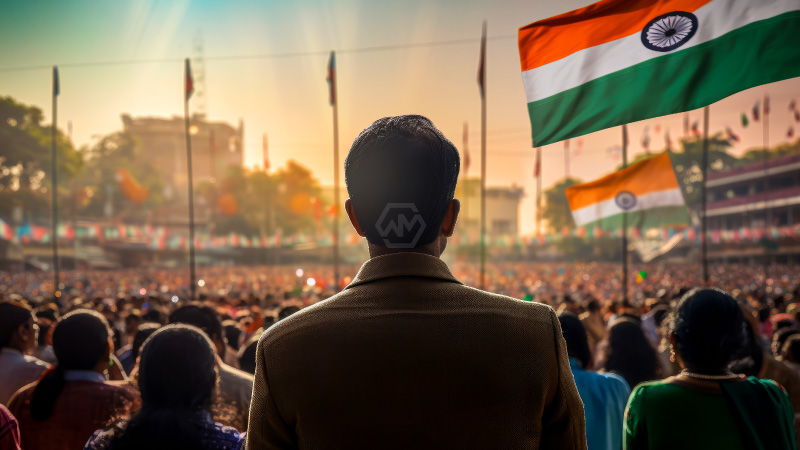- Largest Election in History: Over 968 million eligible voters participated across seven phases from April 19 to June 1, 2024, making it the largest election ever held.
- High Stakes for BJP: Incumbent Prime Minister Narendra Modi and the BJP are seeking a third consecutive term, with results determining if they secure the 272-seat majority needed to govern.
- Results Day: Votes are being counted on June 4, 2024, marking the end of a 44-day electoral process that involved extensive logistical coordination and security measures.
The 2024 Indian general election, which took place in seven phases from April 19 to June 1, has concluded, with the counting of votes occurring today, June 4. This election, the largest in history, saw participation from over 968 million eligible voters, marking a significant milestone in India’s democratic process. The election’s outcome will determine if Prime Minister Narendra Modi and the Bharatiya Janata Party (BJP) will secure a third consecutive term, requiring at least 272 seats in the 543-member Lok Sabha to form the government.
The election addressed major issues such as economic policies, employment, and national security, reflecting the diverse concerns of the electorate. Extensive logistical efforts were made to facilitate the voting process, including the deployment of over 5.5 million electronic voting machines and 15 million election workers and security personnel. The results of this election will shape India’s political landscape and policy direction for the next five years, making this a pivotal moment in the nation’s history.
India Decides: Historic 2024 Election Results Awaited
The 2024 Indian general election has drawn to a close, with voting having been conducted over seven phases from April 19 to June 1. This election, the largest ever in India’s history, involved over 968 million eligible voters, making it a landmark event in the democratic process. The significant voter turnout highlights the high stakes and intense public interest in the outcome, which will determine the next government of the world’s largest democracy.
As votes are counted today, June 4, the nation eagerly awaits the results to see if the incumbent Prime Minister Narendra Modi and his Bharatiya Janata Party (BJP) will secure a third consecutive term. The BJP needs at least 272 seats in the 543-member Lok Sabha to maintain a majority and form the government. The counting process is a critical moment, reflecting the culmination of a massive electoral exercise that spanned 44 days.
Key issues during this election included economic policies, employment, and national security, reflecting the diverse concerns of the Indian electorate. The extensive logistical preparations for the election were noteworthy, involving the use of over 5.5 million electronic voting machines and the deployment of 15 million election workers and security personnel. These measures ensured a smooth and secure voting process across the vast and varied landscape of India.
As India awaits the final results of the 2024 general election, the outcome will significantly influence the country’s future direction in terms of governance and policy. This pivotal moment reflects the robust engagement of Indian citizens in the democratic process and underscores the importance of addressing key issues such as economic reforms, employment, and national security. The results will determine whether the incumbent BJP, led by Prime Minister Narendra Modi, will secure a third consecutive term, shaping the political landscape for the next five years.
The 2024 Indian general election, the largest in history, has seen significant voter engagement, with over 968 million eligible participants determining the political future of the nation.



